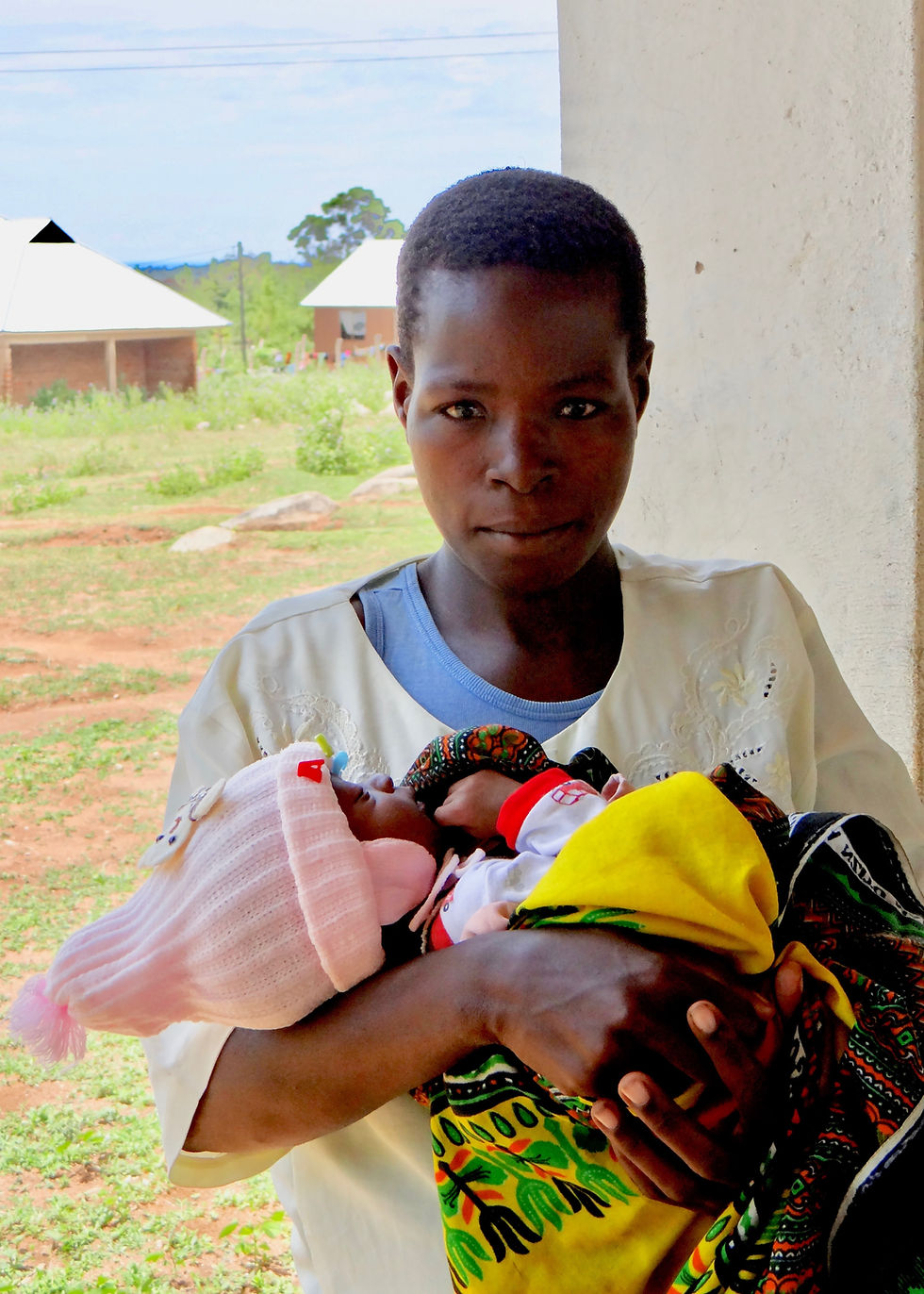Natural Birth in Tanzania
- Dan Gragert
- Jun 20, 2018
- 4 min read
Updated: Jun 29, 2018

What does the phrase “natural birth” mean to you? I know that when we gave birth to our son two years ago, it was a phrase that we deliberated over for several months, like many families. We had to choose between the myriad medical interventions that go along with even the most uncomplicated labor and delivery: epidurals, pain medications, medicinal labor augmentation, artificial rupture of membrane, and on, and on, and on. Call us crunchy, but we wanted to go as “all natural” as possible; and luckily, everything went off without a hitch. We had the privilege to hand select through our options.
But a “natural birth” can have a different meaning. Imagine you live in a small village on an isolated island, and you are more than a half day’s walk to the closest medical facility. There are no roads. No ambulances. There isn’t even WebMD! If your family was able to save enough money to pay someone with a truck to drive you over the rough dirt trail to a medical facility (assuming you did not give birth on the way), you have no guarantee that you will be met with even the most basic medical supplies or a trained provider. If you did not bring sterile gloves along, all cervical exams will be performed without protection. If you did not bring any blankets, you will sleep uncovered, and likely bare.
This is why more than half of all mothers will give birth at home on the large island district of Ukerewe off the mainland coast of Tanzania in Lake Victoria. This is why you have an almost 200 times greater chance than most in medically developed countries of not surviving the postpartum period.
For many women in this district, a “natural birth” means laboring for several days, until a large enough fistula in your pelvic organs forms to “correct” an obstructed labor. A “natural birth” means hoping that prayer, alone, will help stop “that” bleeding. A natural birth means not having any other options.
Veronica is holding her first and only living son, Bakari. Veronica has had four pregnancies. Her first three went to full term; however, they unfortunately resulted in three separate fetal deaths. She had labored and delivered all three at home; and, she was unaware of the deaths until after she delivered. This did not break her enthusiasm to continue trying. Although, there were no resources for a medical workup to investigate the recurrent complications, she continued trying. For this pregnancy, her family decided to stay with her in-laws who lived close to the local district hospital. However, when she arrived to the hospital in labor, there were not enough nurses to provide the due care. Sadly, she delivered a fourth demise. She was then left on the bare table for several hours; and no one was able to attend to her as she said she was in pain. This went on for several hours, until she delivered Bakari. Without proper medical care and supervision in the prenatal and antenatal period Veronica was never made aware that she was carrying twins.
Editha came to the local clinic in preparation for an upcoming surgical brigade, with a focus on fistula repairs. She delivered all three of her children at home, with her youngest son born a year ago. She was concerned about going to a medical facility for her prenatal and antenatal care, because she did not believe that they would be sensitive to her cultural background. Editha was a victim of female genital mutilation, and she had heard stories that the Tanzanian government would take her children away as an effort to stop the practice. Although this is not true, it illustrates the tangible and intangible fears that many pregnant women in this region must face. Editha was in labor, at home for three days, without medical supervision or attention. She states she is blessed that her son Abdul was born healthy and vibrant. However, several months after the delivery she noticed leakage of urine and stool. She had developed a large recto-vaginal fistula from her long, obstructed labor. She was unable to go back to work as a seamstress, due to the social stigma attached to her condition. Her husband now works two full time jobs to support their family.
Veronica and Editha’s stories provide a stark reality of what it is like for many women in Sub-Saharan Africa to be a pregnant and laboring mother. There stories also illustrate the substantial barriers to providing access to care in this particularly austere environment. The United Republic of Tanzania’s Internal Ministry, along with international co-operatives, have been working diligently to improve measurable end-points with regard to access to family planning (specifically long-term, reversible contraceptive devices (LARCs), as well as labor and delivery, post-partum, neonatal, and adolescent care.
It is truly a privilege to get the opportunity to work with these women and for them to allow us to help advocate with them to ensure that future families have access to basic emergency obstetric and newborn care; and, hopefully, someday make a “natural birth” a choice, not an obligation.
Dr. Daniel Gragert is a clinical physician and researcher located in Oklahoma City, Oklahoma. He is currently the Chief Medical Officer with MakeSafe International, a Las Vegas based NGO with offices in Mwanza, Tanzania

Comments